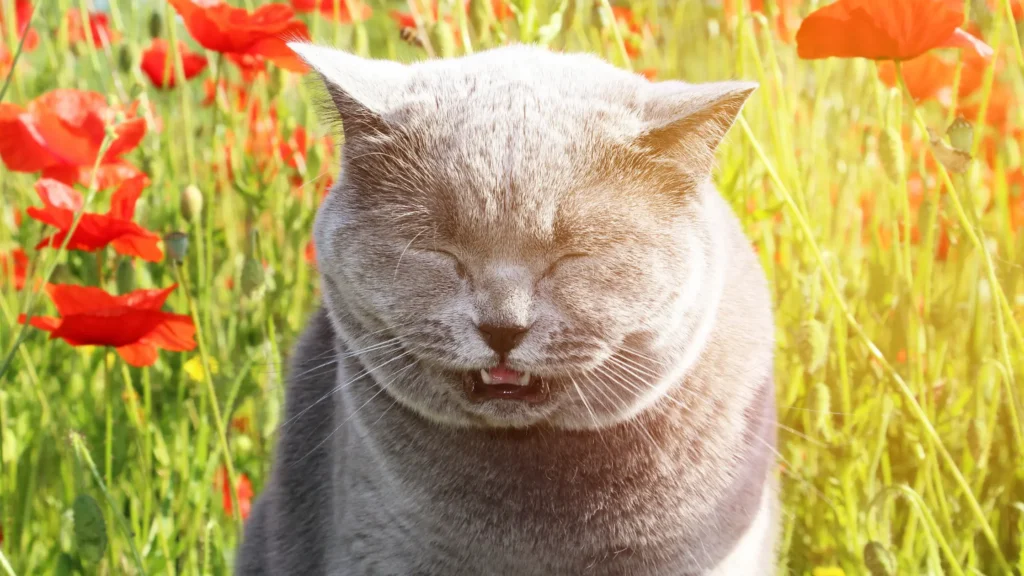Has your cat started coughing up hairballs more often than usual? Or have they developed a new, nagging cough that just won’t quit? Coughing is common in cats, but it can sometimes indicate a serious underlying condition.
As cat owners, it’s important we understand the common reasons behind kitty coughs so we can assess when it’s time to call the vet.
In this article, you’ll get a helpful overview of the most typical causes of coughing in cats, signs that warrant medical attention, how vets diagnose coughing, treatment options, and tips to help prevent cat coughs going forward.
What Triggers Cat Coughing?
Cats cough for all sorts of reasons. It’s a normal protective reflex – their bodies’ way of trying to expel mucus, irritants, or foreign material from the respiratory tract. Here are some of the most common culprits behind kitty coughs:
Respiratory Infections
Viral and bacterial respiratory infections frequently cause inflammation in a cat’s bronchial tubes, triggering coughing. Sometimes secondary fungal or parasitic infections also develop. Typical signs include:
- Wet, productive cough that brings up phlegm
- Sneezing fits
- Congestion
- Discharge draining from the eyes or nose
Feline calicivirus, bordetella, chlamydophila, and mycoplasma bacteria are just a few of the many potential organisms that can cause respiratory illness in cats leading to coughing.
Asthma
Asthma is a very prevalent cause of chronic, recurrent coughing in cats. When allergens or other inhaled irritants trigger airway inflammation and swelling, cats will cough frequently along with audible wheezing or whistling as they struggle to breathe.
Common asthma triggers include dust, pollen, mold, cigarette smoke, litter dust, and perfumes. Obesity and stress can also play a role in some kitties.
Heartworm Disease
While mosquitos transmit potentially deadly heartworms to our furry pals, symptoms tend to be subtler in cats compared to dogs. Coughing is one early sign of feline heartworm disease, since the worms take up residence in the pulmonary arteries leading to the lungs.
Environmental Irritants
Cats have sensitive respiratory tracts, so exposure to cigarette smoke, chemical cleaners, dust, and other airborne irritants found indoors can certainly cause bouts of coughing for some felines.
When Should I Take My Coughing Cat to the Vet?
Occasional coughs are usually no big deal, especially if your cat otherwise seems healthy and energetic with a good appetite. But certain signs do warrant a trip to the veterinarian for further diagnosis.
A Cough That Won’t Quit
When your cat’s cough persists continuously for more than 2 days or seems to worsen over time, it’s smart to get them checked. Chronic coughs can quickly progress to pneumonia or other complications that are harder to treat if left undiagnosed.
A Wet, Productive Cough
A wet or “moist-sounding” cough that brings up sputum or phlegm may point to an infection brewing in the lower respiratory tract – like pneumonia or bronchitis, which requires veterinary attention.
Audible Wheezing Between Coughs
If you hear wheezing or whistling sounds as your cat breathes in and out, it likely indicates they are having some trouble getting sufficient oxygen. Severe asthma attacks can impede breathing, as can pneumonia, fluid around the lungs, or other problems.
Nagging Cough Alongside Weight Loss
Whenever coughing is paired with progressive weight loss and/or a fading appetite, it warrants a closer look to rule out illnesses like systemic fungal infections, heartworm disease, cancer, or other parasitic infections. Catching the problem early vastly improves treatment success.
A Cough That Keeps Recurring
A nagging cough that recurs again and again with no obvious root cause could signal an inflammatory condition like chronic bronchitis, certain allergies, or lifelong feline asthma. Identifying and minimizing triggers are key to relief.
How Do Vets Diagnose Coughing Cats?
When you bring your fur baby into the animal hospital for coughing issues, the veterinary team will perform a systematic diagnostic process like this to pinpoint the cause and guide appropriate treatment:
Detailed History – They’ll inquire extensively about when coughing started, episode duration and timing, any triggers you can identify, plus accompanying symptoms like sneezing, lethargy, appetite changes, etc.
Complete Physical Exam – The vet will listen closely to your cat’s breathing for telltale wheezing or congestion, take their temperature, analyze their cough’s sound quality, and assess overall health.
Diagnostic Tests – To confirm or rule out specific suspected illnesses, vets often utilize:
- Blood tests checking infection-fighting white blood cell counts plus antigen testing for pathogens like feline leukemia
- Lung X-rays to visualize pneumonia or cancer
- Endoscopy procedures allowing visual inspection of airway inflammation
- Lung cultures to isolate infectious organisms
- Cardiac ultrasounds making sure the heart muscle and valves appear healthy
How is Cat Coughing Treated By Vets?
Once diagnostic steps uncover the reason behind your kitty’s bothersome cough, targeted treatments can provide relief and a remedy.
Respiratory Infections
Bacterial respiratory infections generally clear with antibiotic courses lasting 2-4 weeks. Viral infections won’t respond to antibiotics, so vets provide supportive therapies like oxygen, fluids, pain management, and rest.
Asthma Flare-Ups
For asthma attacks, vets often prescribe fast-acting bronchodilators to open swollen airways paired with inhaled steroids to control inflammation. Preventing exposures to irritants is also key.
Heartworm Disease
Advanced heartworm disease can be difficult to treat in cats, so prevention via monthly medication is extremely important. In early or mild cases,心 coughing is sometimes managed with steroids while waiting for adult worms to die off.
Environmental Triggers
When cigarette smoke, dust, chemicals, litter ingredients or other inhaled irritants seem responsible for coughing, removing those factors from kitty’s environment is curative.
Additional treatment approaches vets might recommend for supportive care include:
- Cough suppressants providing temporary relief
- Expectorants helping loosen mucus
- Decongestants reducing stuffiness
- Fluid therapy and appetite stimulants
- Oxygen support
For coughs caused by an existing condition like asthma or allergies, minimizing exposures to those triggers can also lessen symptoms long-term alongside medication regimens tailored for that disease.
Can Cat Coughs Be Prevented?
While an occasional cough is perfectly normal, there are some steps cat parents can take to lower risks of chronic coughs cropping up:
- Maintain annual veterinary exams and keep core vaccines like feline distemper up to date
- Administer monthly heartworm preventatives without fail
- Pick dust-free, fragrance-free cat litter free of perfumes and chemicals
- Frequently groom longhair cat breeds prone to excessive hairballs
- Consider an air purifier to filter allergens and irritants at home
- Stop smoking indoors around susceptible cats
- Limit access to string, tinsel, and other inhalation dangers
When it comes to our precious feline companions, staying informed about changes in their health allows us to get prompt care when those worrisome coughing fits strike. Partner closely with your veterinary team for your cat’s best respiratory health!
Useful Equipment
Let us know down below if you found this article helpful. Are there any other topics you would like us to touch on?
If you are a cat or pet lover in general here are a few more articles you may find interesting:
- THE 50 BEST MALE & FEMALE DOG NAMES
- THE TOP 10 MOST EXPENSIVE CATS IN THE WORLD
- HOW TO TRAIN A KITTEN TO USE A LITTERBOX
- THE TOP 10 MOST POPULAR CAT BREEDS IN THE WORLD
- WHY DO CATS HATE WATER SO MUCH? THE COMPLETE GUIDE FOR CAT OWNERS


